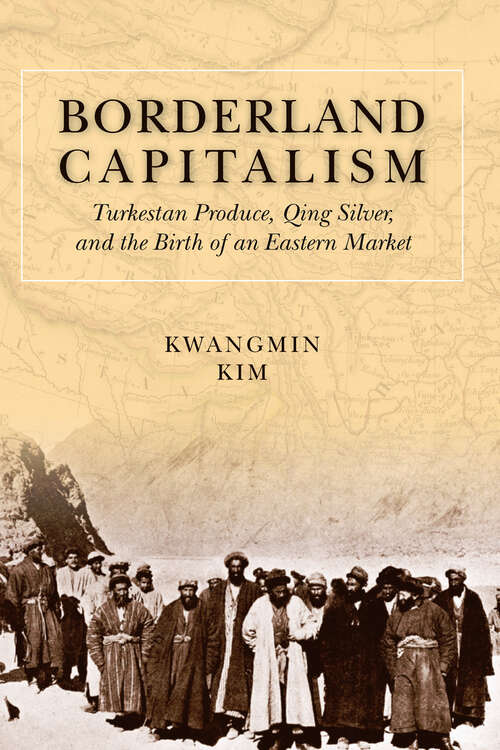Borderland Capitalism: Turkestan Produce, Qing Silver, and the Birth of an Eastern Market
By:
Sign Up Now!
Already a Member? Log In
You must be logged into Bookshare to access this title.
Learn about membership options,
or view our freely available titles.
- Synopsis
- Scholars have long been puzzled by why Muslim landowners in Central Asia, called begs, stayed loyal to the Qing empire when its political legitimacy and military power were routinely challenged. Borderland Capitalism argues that converging interests held them together: the local Qing administration needed the Turkic begs to develop resources and raise military revenue while the begs needed access to the Chinese market. Drawing upon multilingual sources and archival material, Kwangmin Kim shows how the begs aligned themselves with the Qing to strengthen their own plantation-like economic system. As controllers of food supplies, commercial goods, and human resources, the begs had the political power to dictate the fortunes of governments in the region. Their political choice to cooperate with the Qing promoted an expansion of the Qing's emerging international trade at the same time that Europe was developing global capitalism and imperialism. Borderland Capitalism shows the Qing empire as a quintessentially early modern empire and points the way toward a new understanding of the rise of a global economy.
- Copyright:
- 2016
Book Details
- Book Quality:
- Publisher Quality
- ISBN-13:
- 9781503600423
- Related ISBNs:
- 9780804799232
- Publisher:
- Stanford University Press
- Date of Addition:
- 05/17/17
- Copyrighted By:
- Stanford University Press
- Adult content:
- No
- Language:
- English
- Has Image Descriptions:
- No
- Categories:
- History, Nonfiction, Language Arts
- Submitted By:
- Bookshare Staff
- Usage Restrictions:
- This is a copyrighted book.
